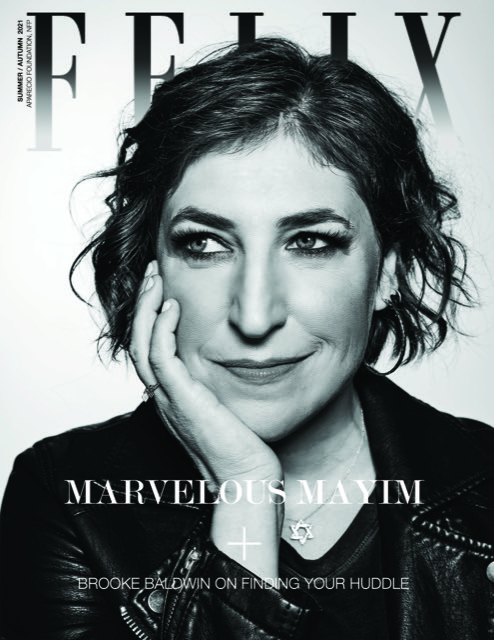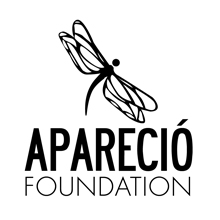Maestro Domingo
Plácido Domingo
Photo Credit: Plácido Domingo, Image Courtesy: Brescia Amisano.
Maestro Domingo
Plácido Domingo
Photo Credit: Plácido Domingo, Image Courtesy: Fiorenzo Niccoli.
Maestro Domingo
Plácido Domingo
Photo Credit: Plácido Domingo, Image Courtesy: Fiorenzo Niccoli.
Maestro Domingo
Plácido Domingo
Photo Credit: Plácido Domingo, Image Courtesy: Fiorenzo Niccoli.
Maestro Domingo
Plácido Domingo
Photo Credit: Plácido Domingo, Image Courtesy: Fiorenzo Niccoli.
Plácido Domingo is an internationally acclaimed opera singer and philanthropist, twelve-time Grammy winner and two-time Emmy winner; his talent encompasses both opera singing, opera administration and conducting. Domingo’s 62-year career reflects his impressive artistic versatility. Since his debut in 1962 at the renowned Palacio de Bellas Artes in Mexico City, he has starred in major theatrical productions across the world such as Teatro alla Scala, performing alongside world renowned tenors Luciano Pavarotti and José Carreras. Other than participating in prestigious theatrical productions, Domingo has starred in numerous cinematic productions, working with prominent directors such as Franco Zeffirelli.
In 1973 he launched his career as opera conductor, leading La Traviata at Lincoln Center in partnership with the New York City Opera. Since then, he has conducted more than 600 performances all around the world. His personal achievements within the opera industry are matched by his numerous philanthropic activities: in 1993 he founded Operalia, an annual international opera singing competition that launches talented young opera singers, and between 2010 and 2012 he became both UNESCO Goodwill Ambassador and President of Europa Nostra. Maestro Domingo’s words resonate with an artistic flair that reflects his deep-rooted passion for the world of Opera. Throughout his accomplishments he remains admirably humble, defining his greatest achievements as “honors” and always remembering to credit his co-workers, graciously sharing the limelight.
When did you first develop a passion for Opera and when did you decide to turn it into a career?
My parents were Zarzuela singers – Zarzuela is a traditional Spanish lyric genre which is very similar to opera -. They had a Zarzuela company so when I was a child, I spent as much time as I could in the theater, watching performances and rehearsals. Initially, I wanted to become a pianist and conductor, so I studied at the Conservatory in Mexico City, working to afford my studies by playing and singing in night clubs. But one day, when I was 15 years old, whilst singing La del soto del parral (a Zarzuela romanza) and accompanying myself on the piano, my mother was moved by my performance: “You can’t even begin to imagine how well you are singing, my son,” she said…and that perhaps was the beginning.
Was there a specific opera singer that you looked up to when you were young and whose records you learned from?
Like many young singers of my time, I was fascinated by Mario Lanza’s films and Enrico Caruso’s records. During my years at the Conservatory, I watched some of the greatest opera singers perform in Mexico City. But my greatest source of inspiration was probably Caruso who was an extraordinary opera tenor. When I was still very young and working in a theatre in Tel Aviv, I had an epiphany of sorts whilst listening to one of Caruso’s recordings. From then on, I began spending an increasing amount of time trying to emulate his records and my vocal technique shifted significantly; my vision of who I aspired to be as an opera singer crystallized.
What is Operalia’s mission and why is it so dear to your heart?
Opera singing is a career that requires lifelong sacrifice and studying, especially at the beginning, when economic difficulties may force you to give up on your dream in favor of financially stable professions. Operalia is a singing competition that was founded in 1993 with the purpose of promoting and financially supporting new generations of opera singers. My dream is to give talented young singers the opportunity to perform in leading opera theatres, presenting winners with both a monetary prize and the possibility of securing a contract to perform in a major theatre. For this reason, in addition to Operalia, I have also worked to support young aspiring artists by founding and collaborating with various Young Artist Programs in Washington, Los Angeles and Valencia. Performing with former Operalia winners and reading their names on prestigious playbills brings me immense joy.
What was it like to perform a whole production in Vienna for the first time since the Covid pandemic first broke out?
Performing that Simon Boccanegra at the beginning of September 2020 truly was an unexpected honor considering my recent recovery from COVID. Returning to the theatre and feeling the presence of the audience was immensely exciting both because of my recent recovery and because I was thrilled to be reunited with the Viennese public that always welcomes me with extraordinary warmth.
Why did you decide to expand your repertoire beyond tenor roles?
I have always loved the baritone role of Simon Boccanegra and I promised myself that one day before retiring from the stage, I would perform it. I told Maestro Barenboim about my dream and in 2009 I was offered the opportunity to make my debut with him at the Berlin Opera and then perform the baritone role again at Teatro alla Scala. Performing that role was an extraordinary experience and I felt very comfortable with both the baritone tessitura and the character I was interpreting. The tenor is usually a young, infatuated hero whilst the baritone is more mature; often a father figure that transmits values of great humanity, especially in Verdi’s operas. I became truly fascinated by the complexities of baritone roles; the role that was supposed to mark the end of my career actually launched my career’s second chapter that has surprisingly continued for the past 12 years.
What role are you most fond of and what role do you think launched your career?
This is always the most difficult question for me, because choosing a single favorite role is difficult. It is like choosing a favorite son. It is impossible. But I think the role that has most marked my career, especially as a performer, is Otello – in 1962, Domingo debuted at Béllas Artes, performing Verdi’s Otello -.
How is performing in cinematic productions different from performing live? Which format do you prefer?
I was fortunate enough to work on five film-operas with Franco Zeffirelli and Francesco Rosi. The shift from theatrical to cinematic performance is quite jarring as cinema has totally different times compared to theatre. Cinematic productions require you to film many takes, breaking the continuous flow of performance that is characteristic of theatre. In theatre, the emotion we try to convey is short-lived; relative to a specific moment in time that lasts for the entire evening. It is unique and unrepeatable. The audience is the performer’s oxygen, it’s an essential element that enables us to bring the characters we play to life. Last year, I took part in my ninth inauguration of Teatro alla Scala which was a special virtual edition. It was a wonderful show that was broadcasted on television thanks to Davide Livermore’s cinematic directions, but it was very challenging for us performers; we were singing whilst looking at a camera, in front of a completely silent and empty theatre.
How did you shift from being a performer to conducting?
When I was young, I had to replace the conductor in one of my parents’ Zarzuela performances. I have always considered conducting and singing as separate dimensions of my path as a musician but conducting has certainly helped me grow as a singer.
What particular opera singer and/or director did you most enjoy working with?
It’s very difficult to answer. I have sung with four even five generations of singers! Today, I share the stage with younger performers who could be my great-grandchildren and as a young man I sang with the extraordinary Lily Pons who was born in the late 1800s. I have also had the privilege of working and growing artistically with some of the most remarkable directors. Franco Zeffirelli and Piero Faggioni are the ones I have worked with the most and they have created extraordinary masterpieces that I was fortune enough to take part in. So, my answer is not limited to a single artist but rather encompasses a long list of exceptional artists; both singers and directors with whom I have shared intimate mundane moments of daily life in between theatre rehearsals, jokes and football matches.















